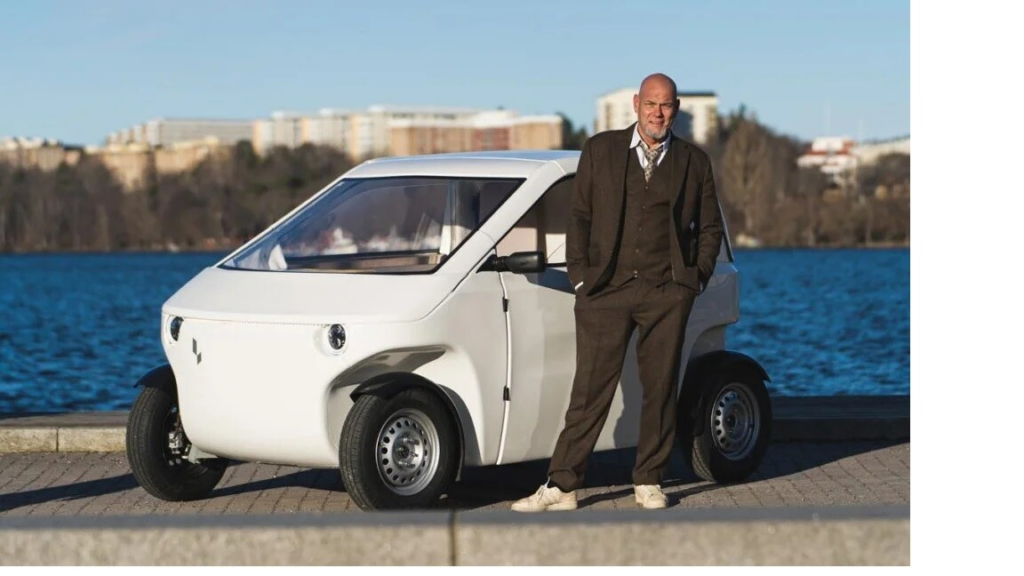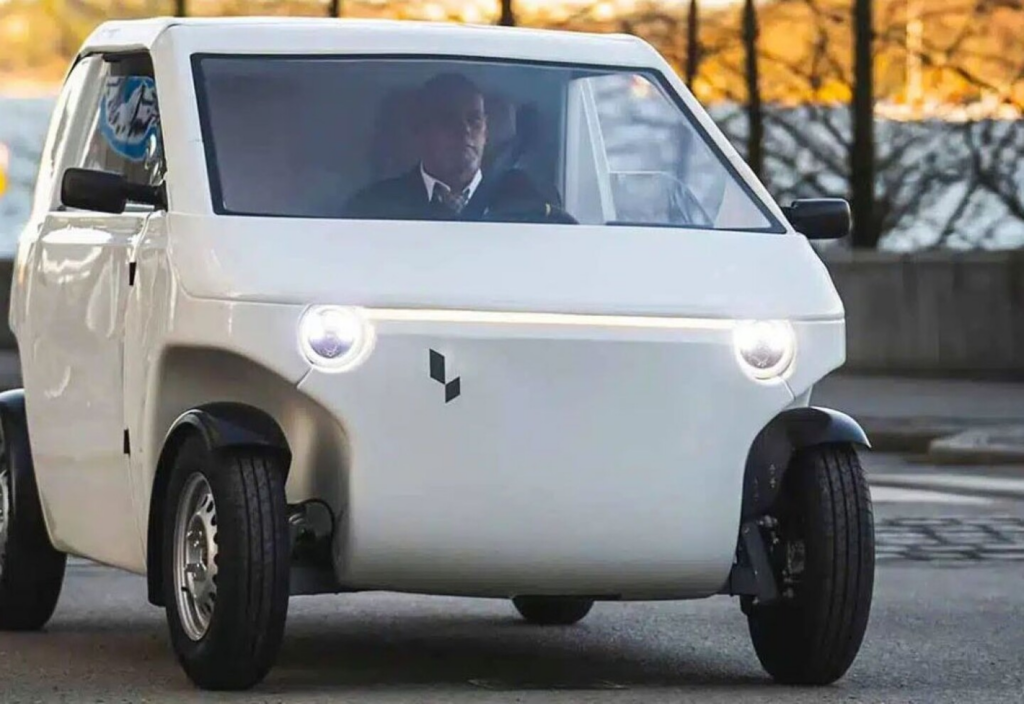
In some areas of the globe, delivery vehicles are no longer a fantasy. An example of the day is the Swedish microcar company’s invention, the Luvly 0.
The vehicle features a minimalist design with straight but fluid lines, windshields, and large windows that prioritize excellent visibility, discrete but effective optical groups, and light exterior and interior colors.
Designed for urban use, the two-seater is a city car. It is 2,7 meters long, 1.53 meters wide, and 1.44 meters tall, has a trunk capacity of 267 liters, and weighs 380 kilograms.

He conceived of the brand Luvly, whose name derives from Light Urban Vehicles (Light Urban Vehicles), with the intention of revolutionizing urban mobility.
Dimensions. The two-seater is 2.70 meters long, 1.53 meters wide, and 1.44 meters tall.
Its CEO, Hkan Lutz, remarked that there is a trend among automakers to produce ever-larger automobiles, which generates a sort of competition between drivers to see who has the most potent ship. The result is cities filled to capacity with vehicles that cannot enter.
On the one hand, cities with excessive congestion, pollution (environmental and noise), and road accidents, and on the other, a paucity of space. Lutz views electric microcars as a tool to combat this trend and be more in accordance with the fight against global warming.

The small vehicle’s 6,4 kWh batteries are separated into two 15-kilogram modules and are removable, allowing for domestic recharge. In addition, its energy consumption is extremely low, 6 kWh per 100 kilometers (80% less than conventional electric vehicles), which makes it 80% cheaper.
Autonomy. The microcar’s range per charge is 100 kilometers.
The designers of the Luvly 0 have already confirmed that the vehicle can attain speeds of up to 90 kilometers per hour.
Is it secure? The answer is affirmative, according to Luvly, as the vehicle’s sandwich-type technology captures energy and protects passengers in the event of collisions. Formula 1 vehicles apply the same logic.
The conveyance method of the vehicle is the greatest innovation of the Luvly 0. Luvly, a Swedish company specializing in the manufacture and sale of flat-pack furniture, employed a shipping system similar to that of Ikea in order to simplify and reduce the cost of the manufacturing process. Thus, he sends the client a packet containing all the car’s pre-assembled components.
The assembly of the microcar is intended to be performed by a Luvly expert, unlike Ikea’s furniture, which comes with instructions and can be assembled by anyone without prior training.
To accomplish this, the company intends to establish regional factories in various parts of Europe (in the future, they may be in other continents) that will be responsible for this instance.
The Swedish company asserts that their transportation method will set them apart and differentiate them from their competitors.
On the company’s website, the Luvly 0 is already available for a price of 10,000 euros (11,000 USD).
IAVA students demonstrate before the administration of a secondary school.
